| |  | | | Final Act of Israel's Gaza War; What's Next for Iran? By Winfield Myers ● Sep 22, 2025 Smart Brevity® count: 8.5 mins...2282 words Jonathan Spyer assesses Israel's ongoing push into Gaza, occurring now because Israel "has determined that the authority that carried out the massacres of 7 October must cease to exist." Failure to achieve this goal would invite further aggression, while success will "place the seal on a remarkable two-year campaign in which a region-wide alliance committed to [Israel's] destruction will itself have been defeated and severely damaged." Seven articles follow that deal with myriad issues concerning Iran. Saeid Golkar writes that military elites haven't sought to topple the regime because of "a system in which loyalty is rewarded, dissent is punished, and defection is nearly impossible." Dalga Khatinoglu argues that impending "snapback" sanctions on Iran could bring down the government because "Iran's economic position in the region is in free fall." Other authors featured include Shay Khatiri, Mardo Soghom, Khaled Alyemany, and Michael Rubin. | | The Final Act of Israel's War in Gaza Is Under Way 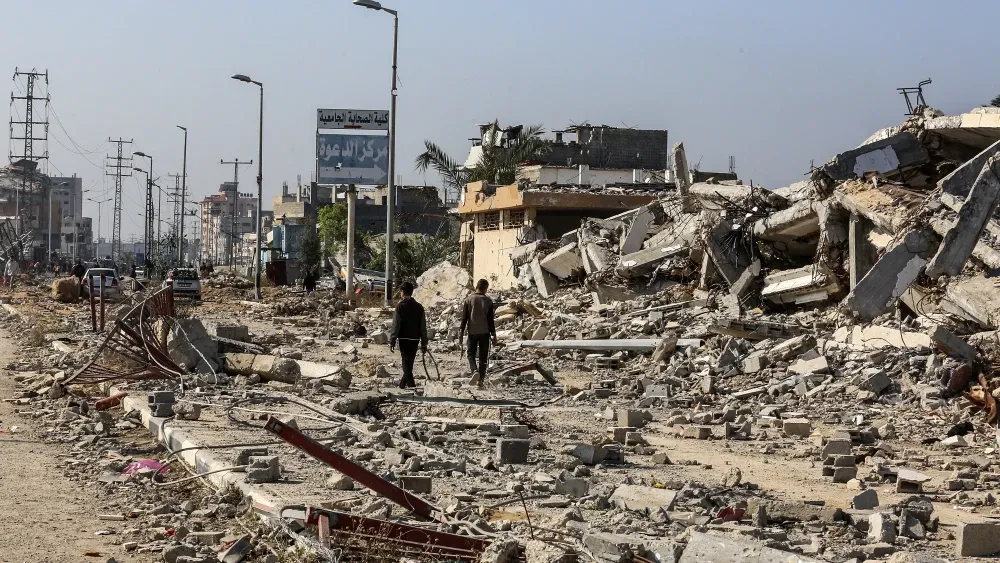 By: Jonathan Spyer Israel's operation to seize control of Gaza City has intensified as it presses ahead, marking a crucial phase in the ongoing conflict. Why it matters: The IDF's campaign is not just about territorial control; it's a strategic endeavor to dismantle Hamas's authority, which is vital for long-term regional stability and to prevent future escalations. Current operations: Two IDF divisions, Division 98 (airborne) and Division 162 (mechanized), are leading the ground assault, with the 36th Division poised to join shortly. Strategic implications: Successfully neutralizing Hamas in Gaza could culminate Israel's broader two-year campaign against the Iran-led alliance. -
Israel has determined that the authority that carried out the massacres of 7 October must cease to exist. For it to happen, the IDF must conquer the totality of the area of that authority's rule. This means taking the remaining 25 per cent of Gaza. -
Should this not take place, then despite Israel's other achievements, the dangerous message will be conveyed to the many enemies of the Jewish state that you can carry out a massacre of Israelis and survive, on condition that you take Israeli civilian hostages. Should it be achieved, then Israel will place the seal on a remarkable two-year campaign in which a region-wide alliance committed to its destruction will itself have been defeated and severely damaged. To read the full article, click here. | | Survival over Defection: Why Iran's Military Elites Stay Loyal 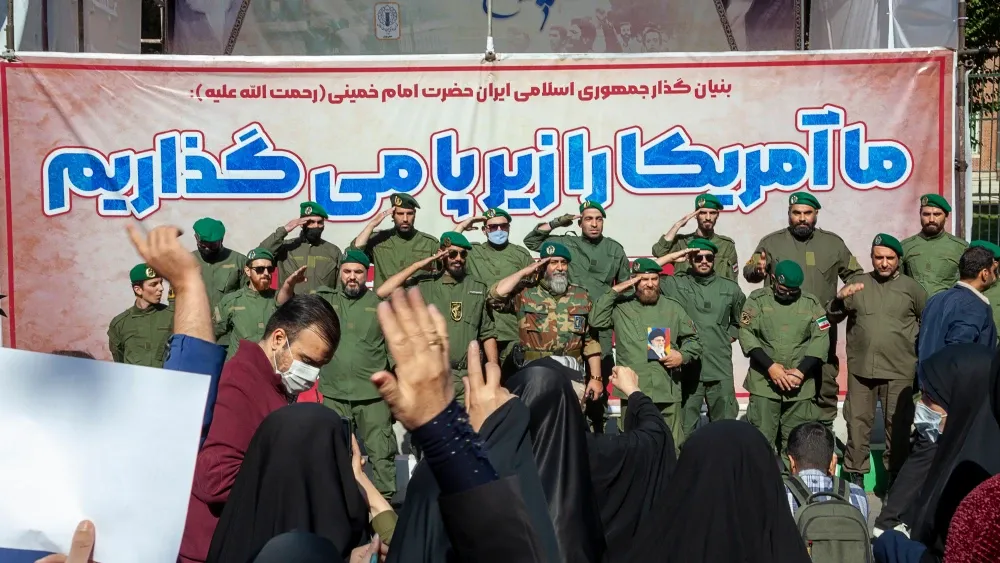 By: Saeid Golkar Over a 12-day war, Israel unleashed psychological and physical attacks on the Islamic Revolutionary Guard Corps (IRGC), shaking Iran's military hierarchy but failing to cause any defections among commanders. Why it matters: Despite Israel's intelligence penetration, which helped eliminate high-ranking IRGC officials, Iran's military elites remain loyal due to a system that rewards allegiance and punishes dissent. Architecture of elite cohesion: The Islamic Republic has spent more than four decades creating a system in which loyalty is rewarded, dissent is punished, and defection is nearly impossible. Economic incentives: The IRGC has evolved into a military-industrial complex, dominating sectors like oil, construction, and telecommunications, offering commanders wealth to maintain loyalty. Surveillance and repression: Iran's expansive surveillance system deters dissent through severe punishment for defection. In brief, Iran's military elites remain loyal not out of ideology, but out of survival. With the right combination of pressure and incentives, especially during moments of crisis, the system can be challenged. To read the full article, click here. | | ICYMI: "The Druze and their Prospects in Syria" with Ahmad Sharawi 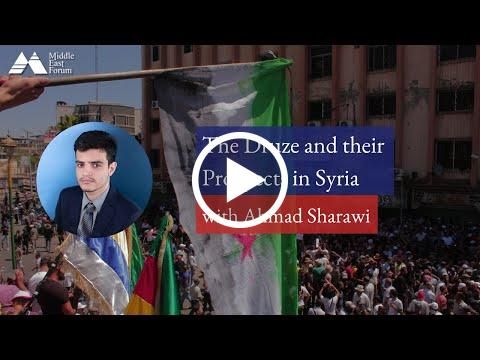 The Druze of southern Syria, long known for their pragmatism, now face an uncertain future as the country's landscape fractures. Caught between Islamist factions, Iranian-backed militias, and shifting Western interests, they are increasingly vulnerable to sectarian violence. On two occasions since the fall of the Assad regime, the community has faced attacks from forces associated with the new authorities in Damascus. Many lives have been lost. What path forward remains for this small but resilient community, and what do their choices mean for the balance of power in the Levant? Ahmad Sharawi is a research analyst at the Foundation for Defense of Democracies, focusing on Middle East affairs, specifically the Levant, Iraq, and Iranian intervention in Arab affairs, as well as U.S. foreign policy toward the region. Previously, Sharawi worked at the Washington Institute for Near East Policy, where he focused mainly on Hezbollah. He holds a B.A. in international relations from King's College London and an M.A. from Georgetown University's School of Foreign Service. To watch the full podcast episode, click here. | | Snapback Is the Final Nail in the Coffin of Iran's 20-Year Development Plan 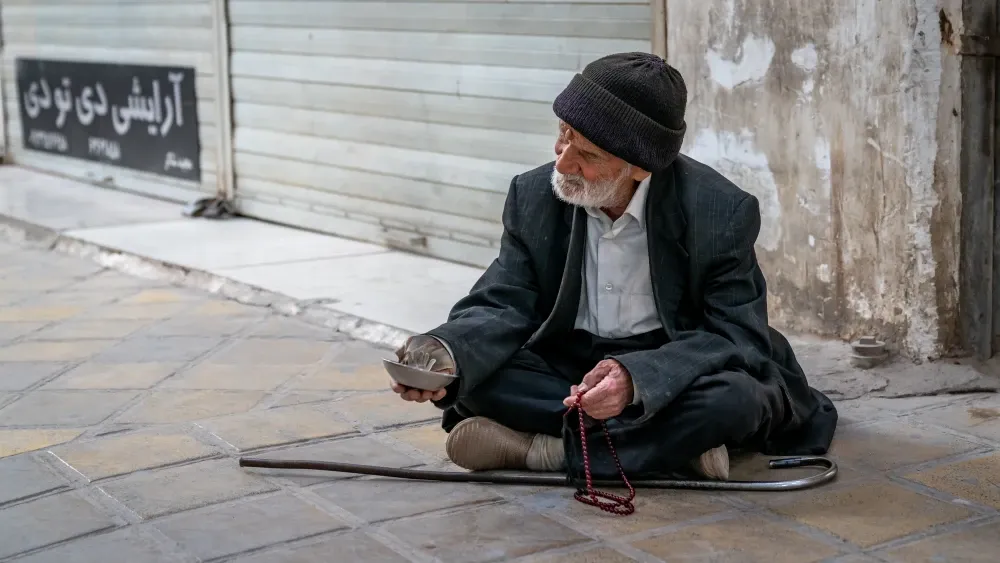 By: Dalga Khatinoglu Twenty years ago, Iran launched its "20-Year Development Vision Plan," aiming for regional leadership in economy and science by 2025. Now, its failures are starkly evident. Why it matters: The plan's collapse highlights Iran's economic and strategic decline, with significant implications for regional stability and its global standing. Economic downfall: Iran's GDP, once on the rise, has halved since 2012 due to sanctions and mismanagement. -
The national currency has lost 99 percent of its value since 2005. -
Employment definitions have been downgraded, with stagnant job growth despite a population increase. Brain drain: Iran's efforts to lead in science faltered, as 110,000 skilled Iranians emigrated in 2024 alone. The end of the 20-Year Development Vision Plan, however, cannot be swept under the rug. It represents nearly half of the Islamic Republic's existence. By its predictions and standards, there is no question: The regime's leadership has failed, and Iran's economic position in the region is in free fall. To read the full article, click here. | | The U.N. Security Council Should Endorse Measures to End Iran's Smuggling Lifeline to Yemen 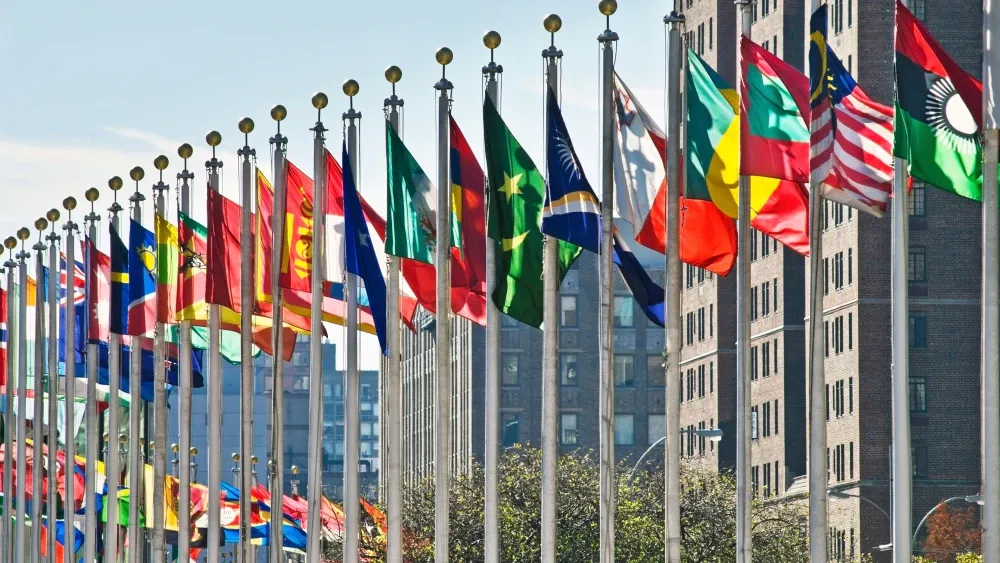 By: Khaled Alyemany The war in Yemen has dragged on for nearly a decade, but one truth has remained constant: the Houthis would not have survived—let alone expanded their military reach—without Iran's weapons pipeline. Why it matters: This unchecked support not only destabilizes Yemen but poses a broader threat, challenging international law and regional security. International inaction: Despite repeated violations of U.N. Security Council Resolution 2216, Iran continues to arm the Houthis. Strategic response needed: Airstrikes alone won't suffice; a coordinated international strategy is imperative. -
Measures should include tighter export controls, maritime domain awareness, and targeting of smuggling networks. -
The U.N. must also address internal collusion and empower local partners to effectively counter these threats. Global responsibility: There is no time to waste. The U.N. Security Council and Yemen's international partners should convene an emergency session of the United Nations Security Council during the U.N. General Assembly to craft a clear strategy to halt Iran's illicit weapons transfers. To read the full article, click here. | | Can the United States Exploit the Return of Iranian Reformism? 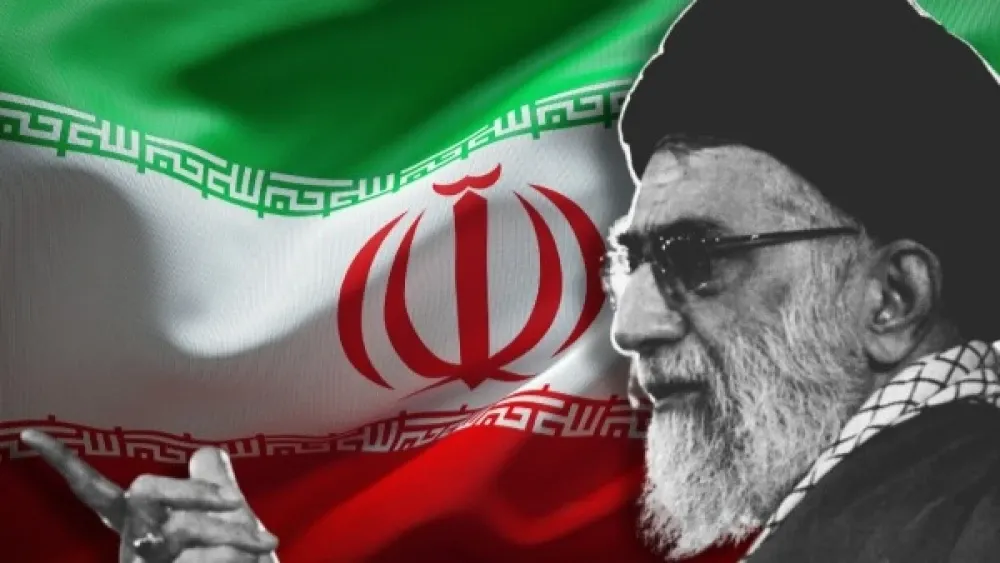 By: Shay Khatiri In the aftermath of the Twelve-Day War, the Islamic Republic faces a power struggle as Supreme Leader Ali Khamenei's hold weakens and moderates and reformists voice open critiques. Why it matters: With Khamenei nearing death, the regime's internal dynamics shift, opening policy disputes and a power struggle over succession. -
Khamenei's committee has identified Mojtaba Khamenei and Hassan Khomeini as successors, with President Ebrahim Raisi, now deceased, likely considered. -
The weakened state of the regime is sparking unprecedented open criticism from sidelined officials. Voices of dissent: On August 12, 2025, former President Hassan Rouhani criticized Iran's foreign policy and relations with the world, framing his speech as a potential bid for leadership. Strategic implications: Reformists and moderates are rallying for national reconciliation, advocating for "rule by the people" and a shift from hostility. This internal discord could lead to regime instability, with Ahmadinejad promoting liberal candidates to succeed Khamenei. -
All factions want to preserve the Islamic Republic, which in any form will be unacceptable to most Iranians, be an enemy of Israel, and, at best, antagonize America. -
In the coming months and years, the primary objective of U.S. policy should be furthering these divisions and ensuring that no single man will succeed Khamenei. Reformists are untrustworthy, but they have found their voice again and are criticizing the weakened Khamenei. There is utility in cynically promoting them to divide the regime. To read the full article, click here. | | Iran Resists Its Own Japan-Style Reckoning 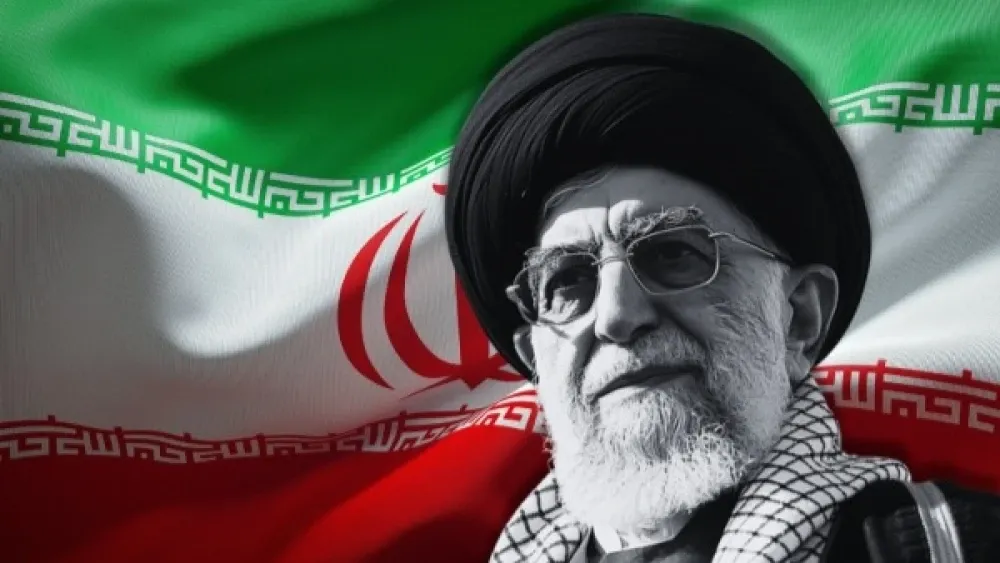 By: Mardo Soghom Today marks the 80th anniversary of Japan's surrender in WWII, a poignant parallel for Iran as it faces renewed U.N. sanctions and potential Israeli airstrikes. Why it matters: Iran's military and economy are crippled, echoing Japan's 1945 plight, as Supreme Leader Ali Khamenei contemplates whether to accept Western terms by the end of September. Strategic miscalculations: Despite openings to change course, Khamenei stalled, leading to devastating Israeli airstrikes that shattered Iran's military assets. Future implications: With foreign troops absent, Iran may gamble on weathering sanctions and strikes, continuing to negotiate for concessions. To read the full article, click here. | | The Future of the Israel-Azerbaijan Partnership: Will It Survive Iran Regime Change? 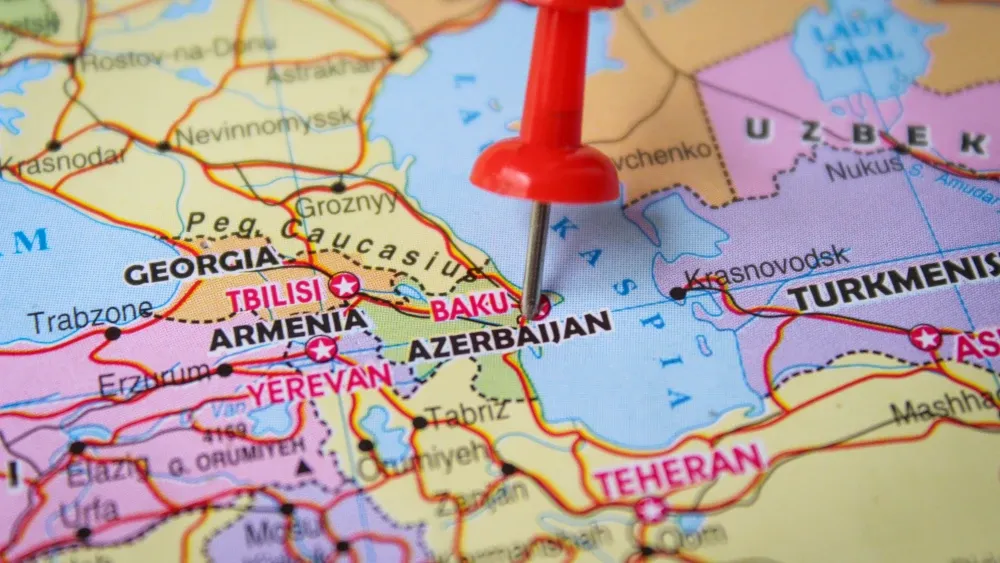 By: Michael Rubin Jerusalem is all-in on Baku, bolstering a 30-year arms-for-energy partnership that fuels Israel's oil consumption and strengthens Azerbaijan's military. Why it matters: This alliance serves as a deterrent against Iran, Israel's biggest strategic threat, leveraging Azerbaijan's border for intelligence operations. Future implications: Just as Israel relied on Iranian oil before the 1979 Islamic Revolution, so too will it likely return to the Iranian market, sidelining Azerbaijan. This will come at the expense of Azerbaijan for two reasons: -
First, Israel and many of its Western partners will want to support the new Iranian government as it tries to rebuild, recover, perhaps fight remnants of the former regime, and show a generation of Iranians indoctrinated by the Islamic Republic that orientation toward the West pays dividends. -
Second, Azerbaijani oil exports to Israel traverse Turkey, giving President Recep Tayyip Erdoğan the ability to cut off this export. Geopolitical dynamics: Turkey, poised to replace Iran as Israel's greatest geopolitical foe, could leverage Azerbaijani oil exports to Israel through Turkish routes. For Washington and Jerusalem, short-term advantage is important, but long-term success also requires playing the long game. To read the full article, click here. | | Iran's Role in Deploying Middle Eastern Militias to the War in Ukraine 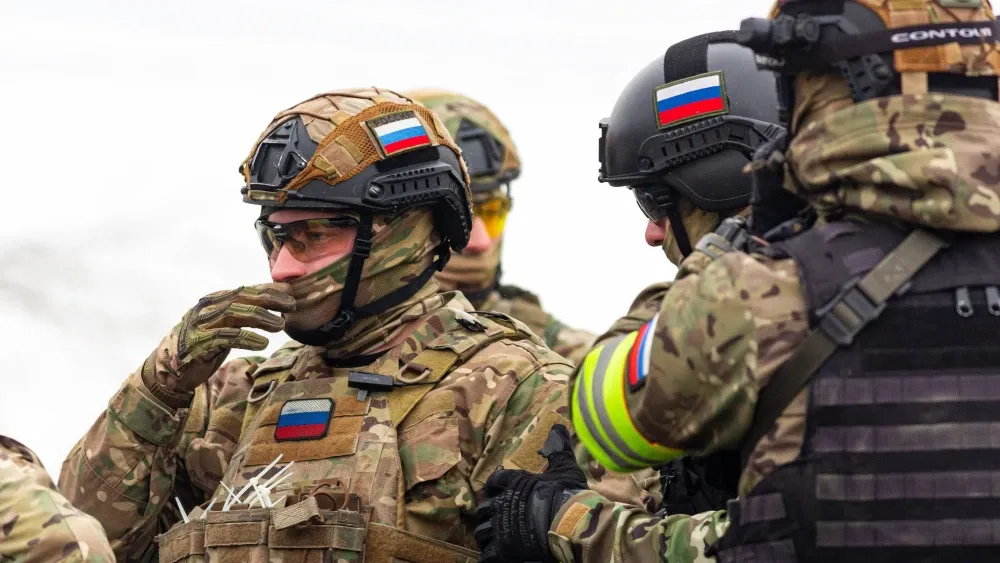 By: Dalga Khatinoglu Russia's deployment of North Korean and Middle Eastern fighters to Ukraine has drawn global attention, highlighting Iran's covert role in the conflict. Why it matters: Iran's influence extends beyond arms supply, leveraging deception to recruit fighters from Iraq, Lebanon, Syria, and Yemen to support Russian forces. Recruitment tactics: Many Iraqis are recruited through human trafficking networks or under the guise of tourism, with offers of $2,000 to $3,000 to fight in Ukraine. Iran's strategic role: Iran's Islamic Revolutionary Guard Corps mobilized Afghan and Pakistani militias for Syria, with similar methods likely used for Ukraine. While Russia uses North Korean soldiers as "cannon fodder," the fate of the tens of thousands of Iran-backed proxy forces sent to Russia remains largely unknown. To read the full article, click here. | | | | | We appreciate your continued support for the Middle East Forum as we deliver critical analyses on Middle Eastern affairs. If you found this edition of the Dispatch useful, please share it with others and be sure to let us know your thoughts on our coverage via the comments feature. Sincerely, Winfield Myers
Managing Editor, Middle East Forum
Director, Campus Watch | | | | Was this edition useful?  

Your email will be recorded and shared with the sender |        MEF, an activist think tank, deals with the Middle East, Islamism, U.S. foreign policy, and related topics, urging bold measures to protect Americans and their allies. Pursuing its goals via intellectual and operational means, the Forum recurrently has policy ideas adopted by the U.S. government.
Copyright © 2024 Middle East Forum, All rights reserved.
Our mailing address is:
Middle East Forum
1650 Market Street, Suite 3600
Philadelphia, PA 19103 | | | | | Powered by 
| | This email was sent by Middle East Forum via Axios HQ | | | |
0 коммент.:
Отправить комментарий